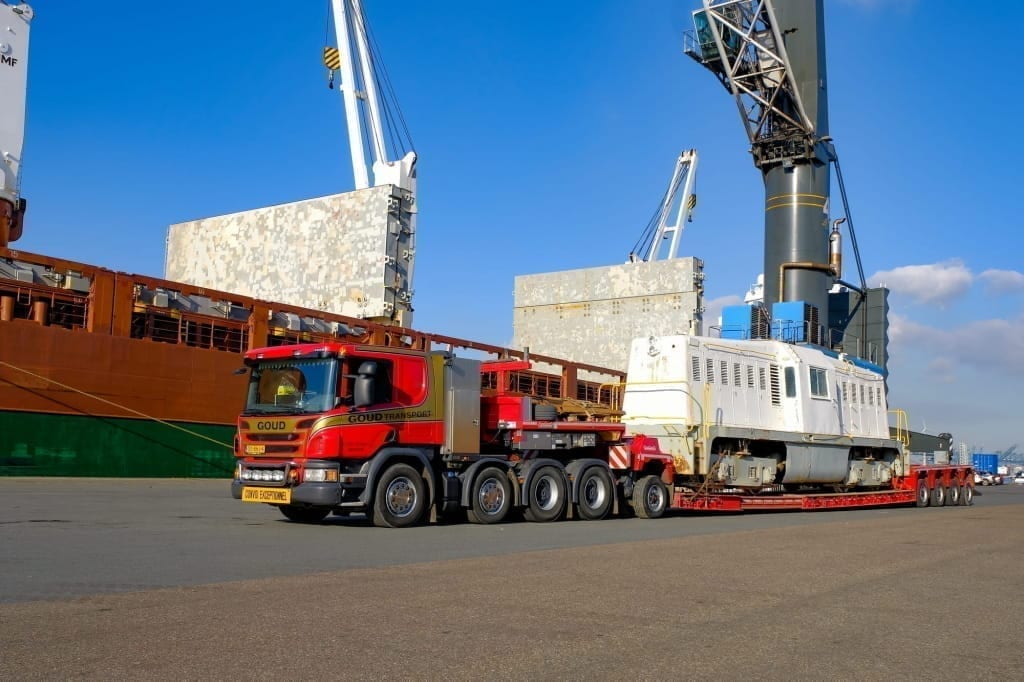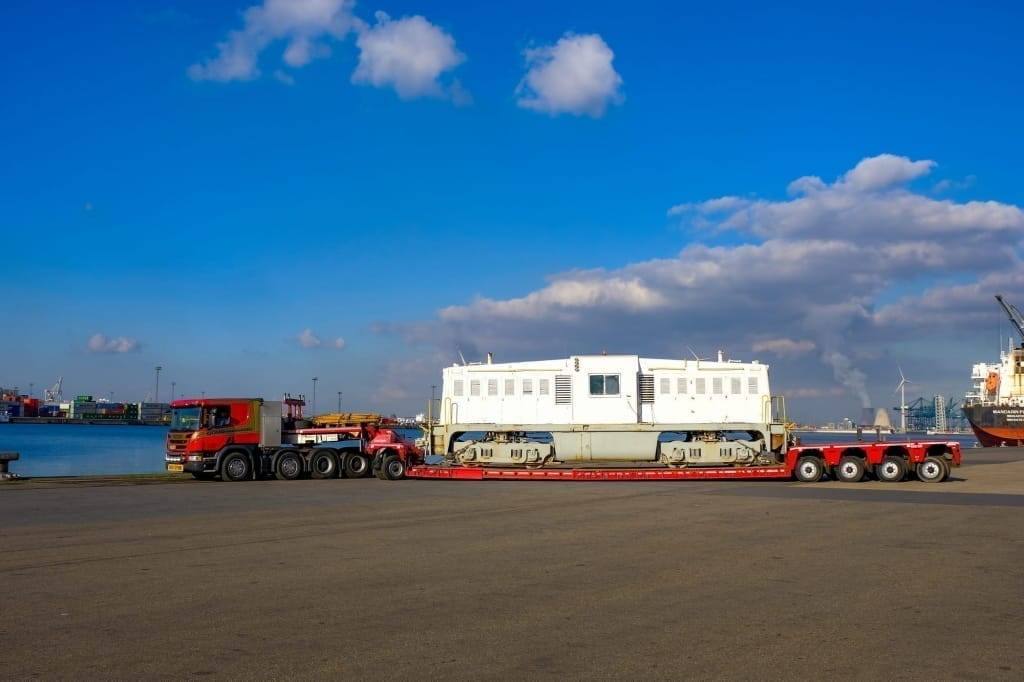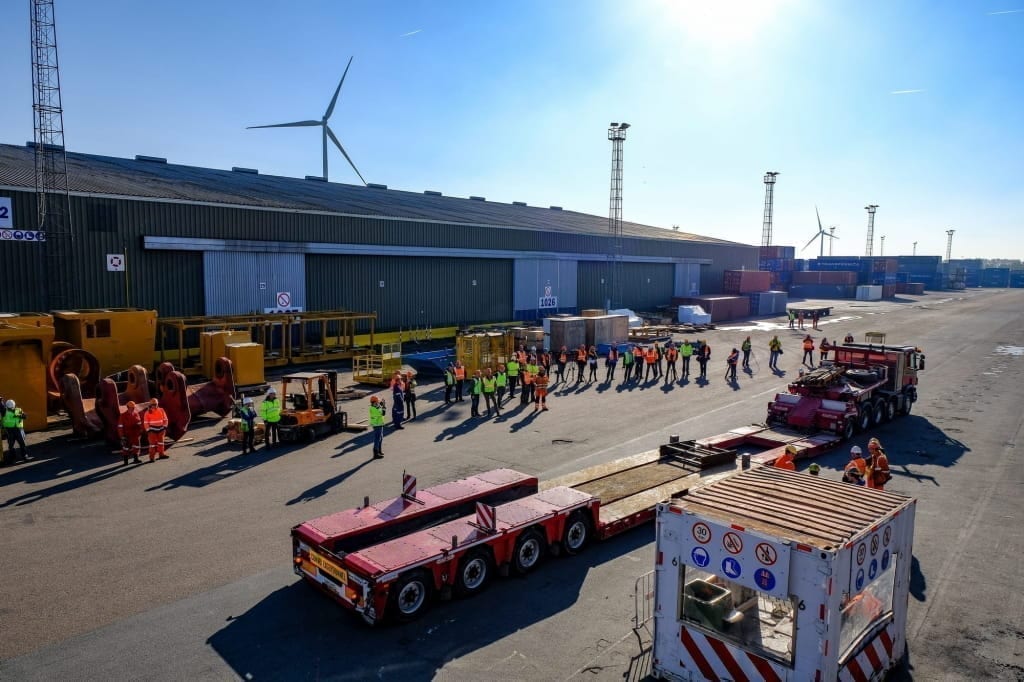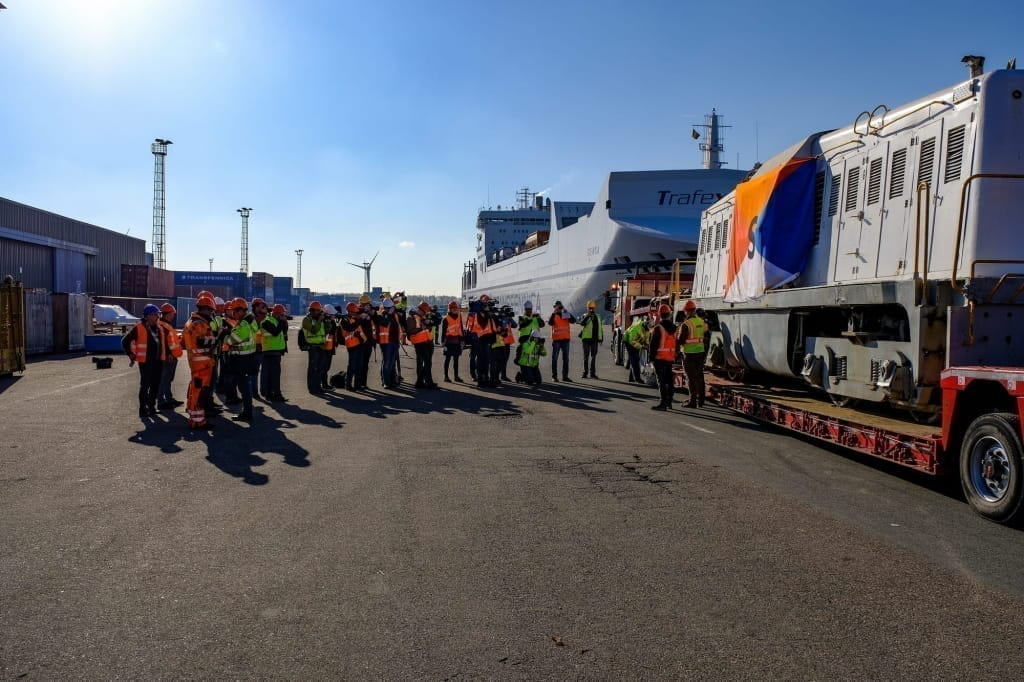Whitcomb locomotive
In total 168 of these locomotives were built and they were put ashore in France after the invasion. From there they took supplies to the allied forces and it was one of these locomotives that first crossed the Rhine at Wesel. Without these powerful machines the liberation would probably have come much later. The construction of the Whitcomb is quite simple really, the front and back are identical and it has two engines. All its systems are duplicated because it was designed to be able to keep going in the war zone, even if one of the engines or steering systems failed. Most military equipment that was left behind in Europe after the war was melted down (steel was in short supply after the war) but somehow these locomotives escaped that fate. They were probably considered to be too useful and valuable. About twenty of them were bought by the NS (Dutch Railways) but they were all scrapped during the sixties.
Stoomtrein Goes-Borsele museum
The Stoomtrein Goes-Borsele, SGB in short, has searched all over the world for one of these locomotives and finally found one in the USA. It was sent back there after the war and until 2007 or thereabouts it was being used at the Lehigh Cement Company in Mason City, Iowa. Not bad for a machine that was expected to last about 4 to 5 years when it was built! Although scrap dealers were keen to lay their hands on it, Lehigh Cement Company decided to preserve the locomotive for posterity and to give it to the SGB. In Goes the locomotive will be restored in its original army colours. Over the years the original engines have been replaced by two 6 cylinder Cummins engines. By pure chance the old bogies and engines were also found and (just in time) saved from the scrapheap. They hope to have the locomotive ready for the 75th anniversary of the liberation. The museum railway is able to do all this thanks to funds raised by sponsoring and crowdfunding. Rederij Spliethoff from Amsterdam has sponsored the sea transport from Milwaukee to Antwerp and port company Euroports took care of the unloading.









